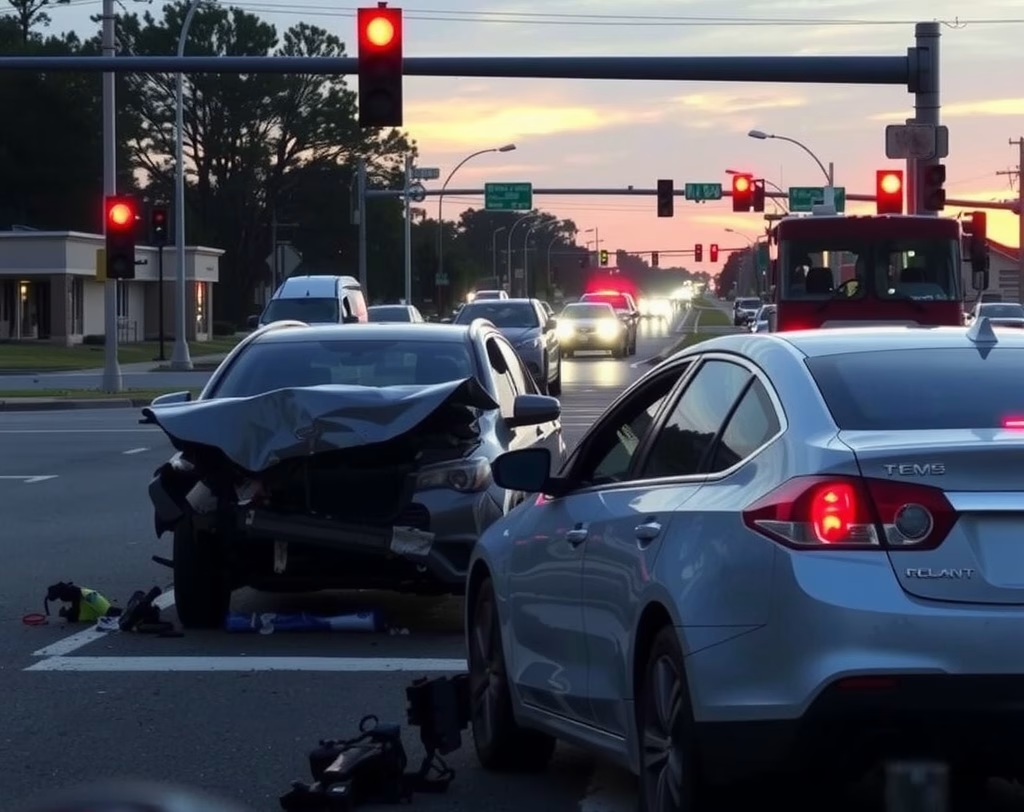You’re driving home on a typical Tuesday evening, just thinking about what’s for dinner, when suddenly—bam!—another driver runs a red light and crashes into your car. Your heart’s racing. You’re shaken. Maybe you're hurt. Next thing you know, you're in the back of an ambulance headed to the ER.
Once the dust settles, you start asking the big questions: “Am I okay?” “Is my car totaled?” And inevitably—“Who's going to pay these medical bills?”
If you’ve been in a car accident in Arkansas, this question is one of the most important—and most confusing. The short answer? It depends. But don’t worry—we’ll walk you through what you need to know, step by step.

First things first: Arkansas is an at-fault or tort state when it comes to car accidents. That means the driver who caused the accident is legally responsible for the damages—including medical bills.
According to Arkansas Code § 27-19-503, all drivers are required to carry minimum liability coverage, which includes bodily injury liability. That’s the coverage that eventually pays for someone else’s medical expenses if you're found at fault.
But here’s where it gets tricky: medical providers don’t wait around for insurance claims to sort themselves out. They want to be paid now. And if you're the one getting treated, that means the bills will likely come to you first—even if you weren't at fault.
In many cases, it’s you—at least initially. But don’t panic. That doesn’t mean you're stuck with those bills forever. There are a few different ways your medical expenses might be handled while the insurance side of things gets sorted out:
If you have health insurance, use it. Your coverage can help pay for ER visits, doctor’s appointments, imaging tests, physical therapy—you name it. Yes, you’ll still be responsible for deductibles, copays, and anything not covered, but it’s a crucial safety net.
Keep in mind: if another party is found at fault later on, your health insurance provider might seek reimbursement from any settlement or verdict you receive. This process is called subrogation, and while it can seem unfair, it’s standard practice.
Here’s something a lot of people don’t realize: Arkansas drivers can add something called MedPay to their auto insurance policy. MedPay helps cover medical bills for you and your passengers, no matter who caused the accident.
It’s optional, but incredibly useful. If you’ve got MedPay on your policy, you can use it right away—before fault is determined, before a claim is settled, and without worrying about deductibles or copays.
Even better? MedPay doesn’t require reimbursement later. It’s yours to use, plain and simple.
Unfortunately, if you don’t have health insurance or MedPay, you may have to pay some medical bills out-of-pocket at first. But hang in there—if the other driver is found at fault, you can pursue compensation for damages to reimburse you for those expenses.
Some providers may even work with you on a payment plan, or agree to a medical lien—which means they’ll treat you now and wait to get paid until your case settles. This is something your attorney can help arrange.
They should—and if they’re at fault, they eventually will. But insurance companies don’t exactly operate on faith. They’ll want to investigate the accident, get their own side of the story, review medical records, and possibly even dispute the severity of your injuries.
That all takes time.
Eventually, when liability is established, the other driver’s bodily injury liability coverage should kick in. This coverage is meant to pay for your medical expenses, lost wages (if you're unable to work), and even pain and suffering.
But be careful: insurance adjusters are trained to minimize payouts. They might offer you a quick settlement that doesn’t come close to covering all your costs. Once you accept, you usually waive your right to ask for more—even if your condition worsens.
This is why it’s so important to talk to an experienced Arkansas personal injury lawyer before agreeing to anything.
Here’s where Arkansas law gets even more nuanced. Our state follows a rule called modified comparative fault. That means if you were partially at fault for the accident, your compensation could be reduced by your percentage of fault.
For example, if you’re found to be 20% at fault, and your damages total $10,000, you’d only receive $8,000.
If you’re more than 50% at fault, you can’t recover anything at all. (Yes, really.)
This is one of the reasons insurance companies love to assign partial blame. It reduces what they have to pay you. But a good attorney can push back on unfair fault assignments and fight for what you truly deserve.
Want to know how this might affect your case? Check out our verdicts and settlements page to see how we've helped past clients recover what they deserve—even in tricky situations.
Let’s be honest—navigating medical bills, insurance claims, and legal fault after an accident is overwhelming, especially when you're hurt and just trying to heal.
At Minton Law Firm, we understand how stressful this time can be. Our founding attorney, Justin Minton, used to be an insurance adjuster. He knows all the tricks insurers use to delay, deny, or diminish your claim—and he’s made it his mission to protect people just like you from being taken advantage of.
We’ll help you understand your options, deal with the paperwork, and fight for every dollar you're owed. And remember: we don’t get paid unless you do.
If you’re wondering who pays your medical bills after a car accident in Arkansas, here’s the short version:
Don’t wait for the bills to pile up. If you or someone you love has been injured, contact us today or call 501-222-HURT for a free consultation. We’re here to fight for you—so you can focus on healing.
"*" indicates required fields